EU regulator 'convinced' AstraZeneca jab benefits outweigh risks
Coronavirus deaths across Europe meanwhile passed the 900,000 mark on Tuesday.
The EU's medicines regulator said Tuesday it was "firmly convinced" the benefits of AstraZeneca's vaccine outweigh potential risks, insisting there was no evidence linking it to blood clots after several nations suspended the shot over health fears.
The suspensions have provoked intense debate over whether it was prudent to put AstraZeneca inoculations on hold just as vaccination campaigns were beginning to gather pace in many countries.
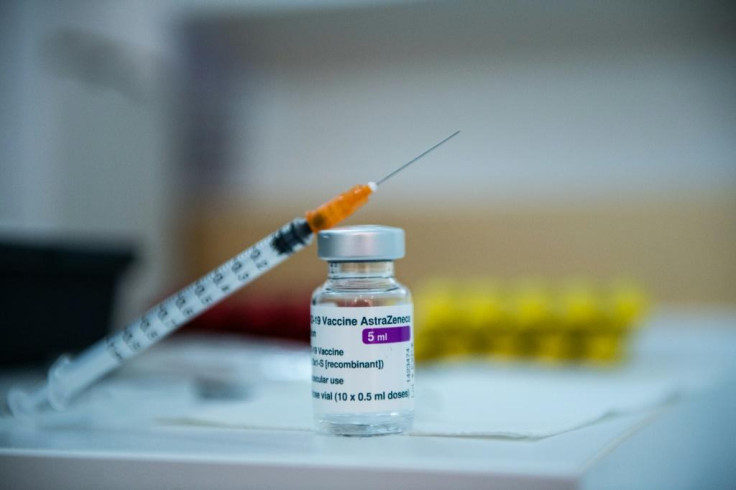
Experts at both the World Health Organization and the European Medicines Agency met Tuesday to discuss the vaccine, with the European organisation expected to publish conclusions Thursday.
While millions of doses of the vaccine developed with Oxford University have been administered, small numbers of people have developed blood clots, prompting countries including the European Union's three largest nations -- Germany, France and Italy -- to suspend injections.
But the EMA insisted that countries should continue using the vaccine.
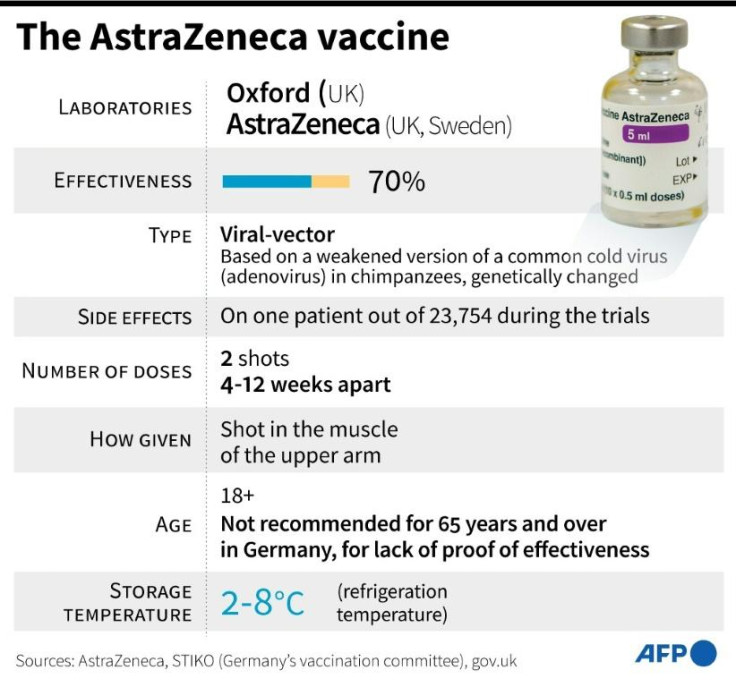
"We are still firmly convinced that the benefits of the AstraZeneca vaccine in preventing Covid-19 with its associated risk of hospitalisation and death outweigh the risk of these side effects," EMA chief Emer Cooke said Tuesday.
"At present there is no indication that vaccination has caused these conditions," she added, echoing the WHO and drugmaker AstraZeneca itself.
Cooke noted however that the regulator was "looking at adverse events associated with all vaccines".
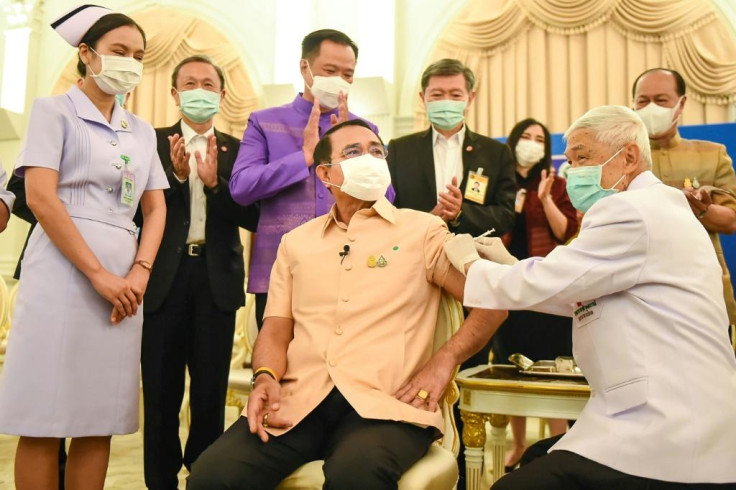
France and Italy welcomed the news.
"Today's preliminary statements from EMA are encouraging," said a joint statement from French President Emmanuel Macron and Italian Prime Minister Mario Draghi.
In France, health authorities said Tuesday they are investigating a new coronavirus variant found in the western Brittany region. The variant appears to be more difficult for nasal tests to detect, however for now it does not appear to be more dangerous or contagious.
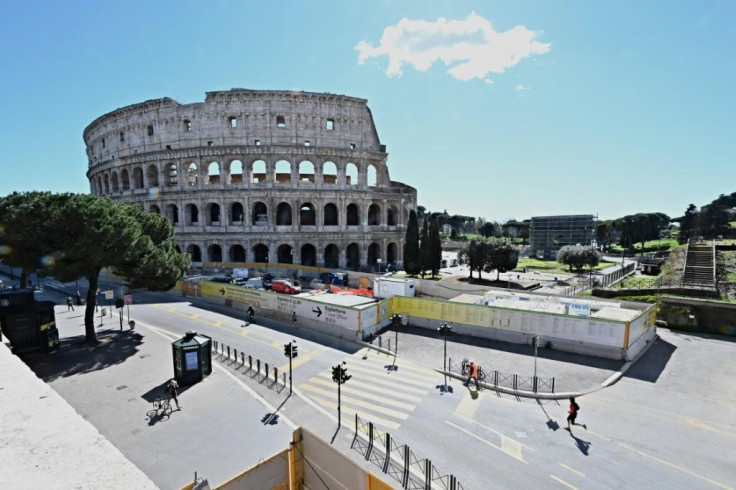
In Britain, which has administered more than 11 million AstraZeneca doses, experts see no evidence of more frequent blood clots among the inoculated.

Prime Minister Boris Johnson wrote in The Times newspaper that the shot "is safe and works extremely well".
French immunologist Alain Fischer, who heads a government vaccination advisory board, said a higher than normal number of pulmonary embolisms -- blood clots in the lungs -- had caused alarm at the weekend.
"There were a few very unusual and troubling cases which justify this pause and the analysis," Fischer told France Inter radio.
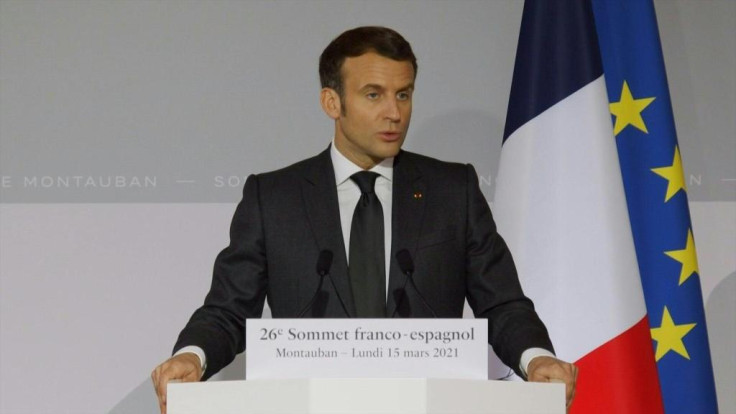
But one British scientist has argued that Covid-19 itself -- and not the vaccine -- could be to blame, as it was known to cause such problems.
The "very likely explanation of at least some of the clotting disorders seen are a result of Covid-19 rather than the vaccine", said Stephen Evans, professor of pharmacoepidemiology at the London School of Hygiene & Tropical Medicine.
"Hence, even if there were a problem, acknowledged to be very rare with the AZ vaccine, the overall benefit would be so much greater than any speculative harm," he added.
Coronavirus deaths across Europe meanwhile passed the 900,000 mark on Tuesday, making it the worst-hit global region in absolute terms, according to an AFP tally.
More than 382 million doses of vaccine have been administered globally, the vast majority in wealthier countries while many poorer nations have yet to receive a single jab.
AstraZeneca's shot, among the cheapest available, was billed as the vaccine of choice for poorer nations and the clot reports have had an impact beyond Europe.
Other countries that have halted or delayed the rollout include Indonesia, Venezuela, Sweden and the Netherlands -- with Cyprus, Lithuania, Luxembourg and Sweden the latest to join the list.
But in Canada, Prime Minister Justin Trudeau urged citizens to get the AstraZeneca shot after reports of hesitancy based on the suspensions. A scientific committee advising the Canadian government meanwhile extended its recommendation for AstraZeneca's jab to people aged 65 and over.
And Thai Prime Minister Prayut Chan-O-Cha was himself injected Tuesday as his country lifted its own AstraZeneca suspension.
"I am an example today," he said.
The pandemic spurred unprecedented efforts to develop vaccines, with a number of successful options now available.
Rollouts have been hampered by export controls, bitter diplomatic disputes and production issues -- in addition to the AstraZeneca suspension.
But on Tuesday Brussels sealed a deal to step up deliveries of 10 million doses of the Pfizer/BioNTech vaccine, now scheduled to arrive in the EU before July rather than in the third quarter.
The developers of Russia's successful Sputnik V vaccine also said they had reached production agreements in key European countries.
Copyright AFP. All rights reserved.
© Copyright IBTimes 2025. All rights reserved.






















